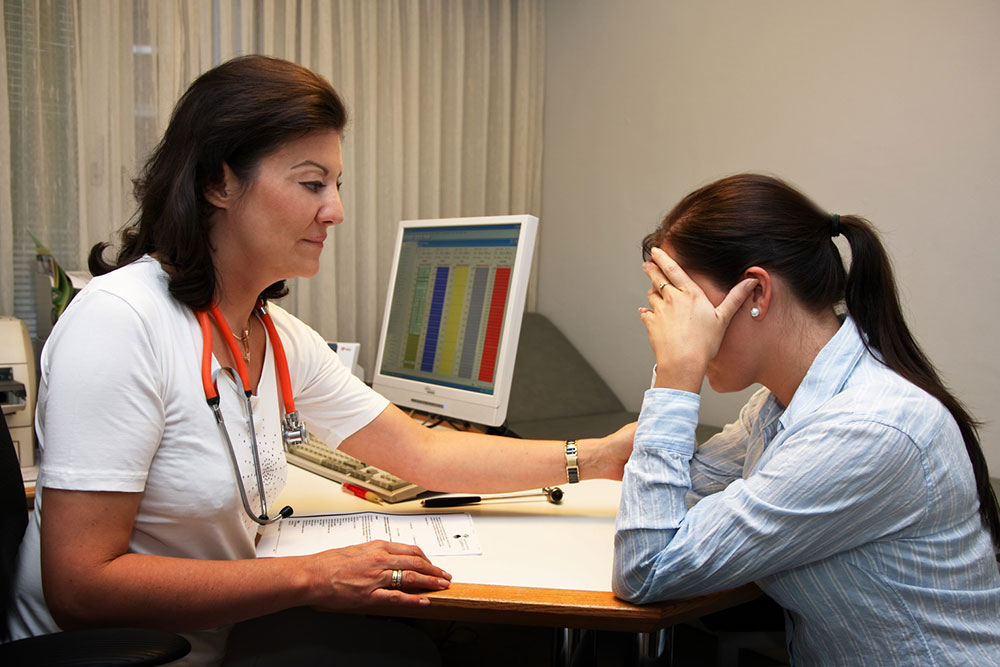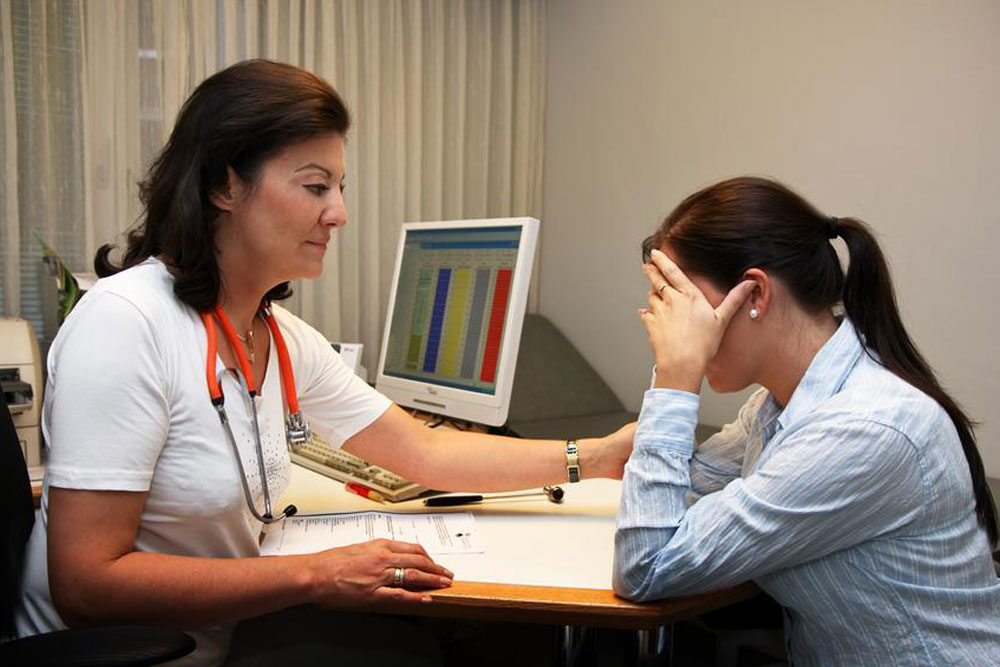Ovarian Cancer Symptoms
Ovarian cancer begins in the ovaries. Ovaries are reproductive glands found only in females (women). The ovaries produce eggs (ova) for reproduction. The eggs travel through the fallopian tubes into the uterus where the fertilized egg implants and develops into a fetus. The ovaries are also the main source of the female hormones estrogen and progesterone. One ovary is on each side of the uterus in the pelvis.
It’s much easier to treat ovarian cancer when it’s diagnosed in the early stages.

- Persistent pelvic or abdominal pain (that’s your tummy and below)
- Increased abdominal size/persistent bloating – not bloating that comes and goes
- Difficulty eating or feeling full quickly
- Needing to urinate more urgently or more often than usual
Other symptoms of ovarian cancer can include:
- Fatigue
- Upset stomach or heartburn
- Back pain
- Pain during intercourse
- Bleeding in-between periods or after menopause
- Indigestion or nausea.
- Constipation or menstrual changes
- Changes in your bowel habits
- Unexplained weight gain or weight loss
In adolescents or children with ovarian tumors, the presenting symptoms can include severe abdominal pain, irritation of the peritoneum, or bleeding. Every woman should undergo a regular rectal and vaginal pelvic examination. If an irregularity of the ovary is found, alternatives to evaluation include transvaginal sonography and/or tumor markers. The most common tumor marker is a blood test called the CA-125.




